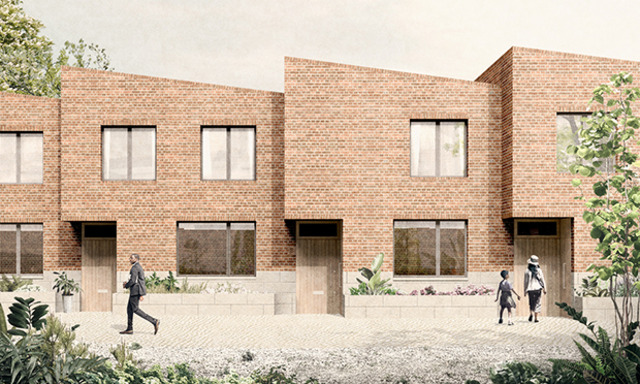Town Hall admits flagship scheme could build fewer affordable homes than first planned

The council’s flagship Housing Supply Programme (HSP) could see a drop in the number of affordable homes it delivers, according to Town Hall officers.
The admission came during discussions last week which saw changes to council plans to build an 11-home terrace on the site of disused garages on Daubeney Road.
When first proposed, the plan had been for the scheme to be split between 55 per cent socially rented housing and 45 per cent shared ownership homes, in which buyers purchase a share of a property and then pay rent on the remainder.
All shared ownership has now been cancelled at Daubeney Road and four of the homes will be sold outright, with officers saying that an additional social rented house was added to the plans after consultation with local councillors.
Chris Trowell, head of the HSP, said: “It was originally intended that the site would be 100 per cent affordable housing. That requires a very high level of financial subsidy to make it viable.
“The specific explanation here is when you take things to market, cost consultants tell us how much schemes will cost to build. You only really know how much they will cost when it’s taken out to tender.
“Part of my job is to keep [the HSP’s tenure mix] in balance. I want to avoid entire schemes being 100 per cent outright sale, so I am doing some painful housekeeping tonight in order to keep the scheme in balance.”
Trowell added that another HSP scheme at Pedro Street is also now over budget. When it was announced in 2017, the scheme proposed 28 homes to replace a disused boiler house on Gilpin Square, with 13 for social rent and 15 for shared ownership.
Councillors quizzed the HSP director on why the site could not deliver as much social housing on the site as previously thought, with Dalston councillor Peter Snell questioning whether the “overall outputs” of affordable living currently promised could now be trusted.
In response, Trowell’s explanation was that Daubeney had been impacted by an uncertain market spooked by Brexit pushing labour and material costs higher, as well as a strong London market allowing builders to “pick and choose” which projects to take up, resulting in price increases on smaller schemes.
While it is understood that the Housing Supply Programme (HSP) is still on track to deliver well over 50 per cent affordable housing overall, there was some disagreement from officers at last week’s meeting about the current projections, with both 70 per cent and 92 per cent quoted.
Trowell also admitted that the same risk of a reduction in affordable housing applied across the whole HSP, with an amount of “flex” possible in how much the amount of social rent or shared ownership homes could be set to decline.
